|
你好, or in pinyin, nĭ hăo from 53.5° north latitude. It was a shortened work week due to the Canadian Thanksgiving holiday on Monday, but as we are fond of saying at work, that just means you have four days to get five days worth of work done. Much reading was done in spite of the busyness of work, resulting in one finished book and significant progress on another. Most other reading was related to politics, both due to the Canadian federal election tomorrow, and as a result of the impeachment discussions in the US. With all that is going on, there was only one new beer, and it was dealcoholized at that. A couple neat recipes to share from the Thanksgiving preparations, and a bunch of new words from all the reading. Time to dig in to this week's leftovers! Politics There: I'm not going to jump in on the proceedings of the impeachment discussions south of the border with any personal diagnosis or assessment. I will however highlight articles and videos that I find interesting or helpful. I imagine there will be lots of good reading and watching in the upcoming weeks. The video to share this week is from 60 Minutes. In it, Scott Pelley discusses covering the Clinton impeachment discussion and contrasts that to what is happening today with Trump. Being in my late 20s at the time, and given how the world reacted to women's allegations of rape, abuse, and harassment, I definitely saw what had happened with a different reaction than I would today. However, it was clear that Clinton lied under oath and there were consequences as a result. Today, perhaps, the consequences would be more severe but that is impossible to say for certain. With Trump however, Pelley argues that this impeachment discussion is different and likely more important because while Clinton abused his power and relationship status with Monica Lewinsky, Trump appears to be manipulating global politics for his personal financial gain. Good stuff from 60 Minutes, and worth a few minutes of your time. Politics Here: With just over 24 hours before the polls close on the federal election, it is shaping up to be an incredibly tight race. I reported a few times in the last several weeks about the projections coming from 338 Canada. Since July, the Liberals have seemingly gifted their rivals with the SNC-Lavalin scandal (that even has its own Wikipedia entry) and Trudeau's blackface revelations. However it seems clear that the Conservatives and NDP are unable to capitalize. The Liberals will almost certainly not have a majority government, which will be a huge - dare I say - black mark for Trudeau. But the Conservatives need to win 75 more seats this election to get a majority, and it is even more unlikely that that will happen. The trend lines for popular seat projections since August 25 are given below. Looking at the graph, both the Liberals and Conservatives have dipped significantly. The benefactors are the NDP and Bloc. The uptick for both parties in the last three weeks is impressive, however the NDP are really only trending to be at par with their performance from 2015. One has to think that the NDP supporters want more from Jasmeet Singh than they received from Tom Mulcair. The Bloc stand to gain two dozen seats this election, almost entirely from the Liberals, while reinforcing the message that the NDP surge in Quebec two elections ago was a forgettable blip in history. A strong separatist party, a minority government, and a leading party plagued by scandal. This is a potent cocktail of uncertainty and drama that have many people interested, even outside of Canada. This CBC article discusses how foreign diplomats are scrambling to figure out how the NDP, Green, and Bloc could influence what a minority government would look like. Closer to home, Calgary Herald columnist Don Braid wrote this past week that the Bloc support for a Liberal minority government would likely mean stopping development for all pipelines and halting subsidies for oil and gas. Braid suggests the Bloc's plan is "anti-Alberta" and would "ruin Alberta". It is interesting to note that Braid suggests this might be retaliation for Alberta's lectures to "Quebec over pipelines and oil imports going back to ex-premier Alison Redford". Maybe we shouldn't have been such asses to the rest of the country when things were oh-so-good here in Wild Rose Country. Food: Thanksgiving means a big meal with friends, and that means a lot of cooking. Tradition in our house is to cook a big turkey for Thanksgiving using the method outlined by Cook's Illustrated several years ago. but we are leery about stuffing the cavity of the bird with bread due to the opportunity to have uneven cooking and the resultant risk of food poisoning. It is a shame though because a good stuffing is fantastic to eat. Over the years we have tried various ways compensate, but for the most part we ended up with soggy bread that didn't taste like the stuffing we loved. 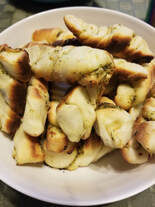 This year, we tried something new. Earlier in the week we had tried a easy bread recipe made with nothing but self-rising flour and yogurt of all things. That recipe was used to make some great cheese twists. For Thanksgiving, we used the same herb paste that went on the turkey instead of the cheese - fold, twist, bake, voilà! Now we can have something that has a great taste of bread flavored with the herb in a turkey without the heaviness caused by being soaked in turkey juices, and all without being a sodden mess when cooked separately. Plus, no risk of salmonella. The other hit this past week was a Carrot Cake Oatmeal made with shredded carrots and raisins, and topped with toasted coconut. The oatmeal hater liked it, and the oatmeal lover thought it was still pretty good. So now four people will eat oatmeal instead of three. Reading Pile: Over a month ago, I wrote about "Solitude: A Singular Life in a Crowded World", by Michael Harris. I was able to finally finish it this week, and as you can see from this picture, there were several ideas worth flagging in the book. The first idea that jumped out at me was about how hard it is be alone. Humans are social animals and society is geared to treat us as outcasts or miscreants if we want to be alone. Harris commented that people are impaired for fifteen seconds after texting while driving, "but this deadly wandering is a small price to pay to a person fleeing their own loneliness". Endangering lives as a response to crushing loneliness is a sad testament to the society we have created. A recent theme on this blog has been online interactions and the powerful addictions that online systems can create in our minds. Harris talks about some online gamers being so addicted to being online that they are unaware that they are not in fact actually really and truly building something. The point of the system they are engaged in is, depressingly, more system. The point of being online is being online. Even if solitude and quiet contemplation is not some miracle cure for what we need as humans in 2019, being online just because is definitely not a direction I want to pursue. Another similarity drawn from Harris's book with Lanier's book on social media is how online recommendations have significant sway in all that we do online. In the same post mentioned above, I commented: In one case, there are a million voices steering me toward something. In the other, there is only a single voice, but even that single voice is itself influenced by millions of other voices. Harris asserts that this is problematic if we allow ourselves to believe that the system, the website, the algorithm can make better decisions than we can. An algorithm is unable to make a decision - it can only react to data in certain, predetermined ways. That is the exact definition of an algorithm. algorithm [ˈalɡəˌriT͟Həm] NOUN a process or set of rules to be followed in calculations or other problem-solving operations, especially by a computer. Harris points out the danger in allowing us to believe that the machine or algorithm has a belief: Nowhere is this creepier than the arena of taste. If we think that a computer program - so much more rational, so much better informed - believes one ting to be better than another, then the choices we make online about what books to read, what songs to listen to, what movies to watch become less independent and more manipulated. Suggestions on Netflix and iTunes and Amazon - all crowd-sourced and data-crunched - start to feel natural and neutral. If you believe a piece of technology can have a belief, then it's only a tiny step before you start to believe its belief is more important than your own. As the book progressed, I found myself becoming depressed with some of the concepts. Harris begins to tackle how reading forces the brain to adapt and adopt and build new neural pathways that a non-reader will never have. However, he speculates that maybe solo reading is already obsolete. The fact that we are social animals as noted above might mean that reading moves from a solitary endeavor of one person locked into a book to a social exercise where we comment along the way with each other. I find this a terrible prospect. The need for me to immerse myself in a book without distraction and without the need to interact with others is huge. Having to be with someone else and losing the ability to be alone would be a monumental loss to. Harris states that the "constant reader ... learns to hold opinions and ideas that are not their own" and that we not only discover new thoughts, but actually live them. Being constantly connected to our smartphones is "antithetical to deep reading", which is the ability to dig deep into what is being read and truly engage your brain in the material. Losing that skill would mean becoming just a another node in the hive.  Hey, look - page numbers! Hey, look - page numbers! There are benefits of course to the new technology. Harris points out that technology is allowing us to experiment with new types of storytelling that is impossible with the printed word. He goes on to say that "It was sixty years after Gutenberg built his printing press before anyone had the bright idea to number the page. Who know what social text innovations will be made in the decades to come?" I highly recommend that you read this book. But don't get an ebook version. Find a nice quiet corner of the house or a park bench to sit down, by yourself, and read a physical copy of it. I think you will find the exercise well worth the time and effort.
New Words:
Four new words this week. Three were from Solitude and one was from "The Silk Roads". That is proving to be a massive book to read, but with any luck I will finish it this week. Many more words have come from that book, I assure you. caravansary [ˌkerəˈvansərē] NOUN
moil [moil] VERB moiling (present participle)
coruscate [ˈkôrəˌskāt, ˈkärəˌskāt] VERB literary
dendritic [denˈdridik] ADJECTIVE technical
0 Comments
Your comment will be posted after it is approved.
Leave a Reply. |
Archives
April 2022
Categories
All
|
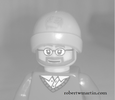
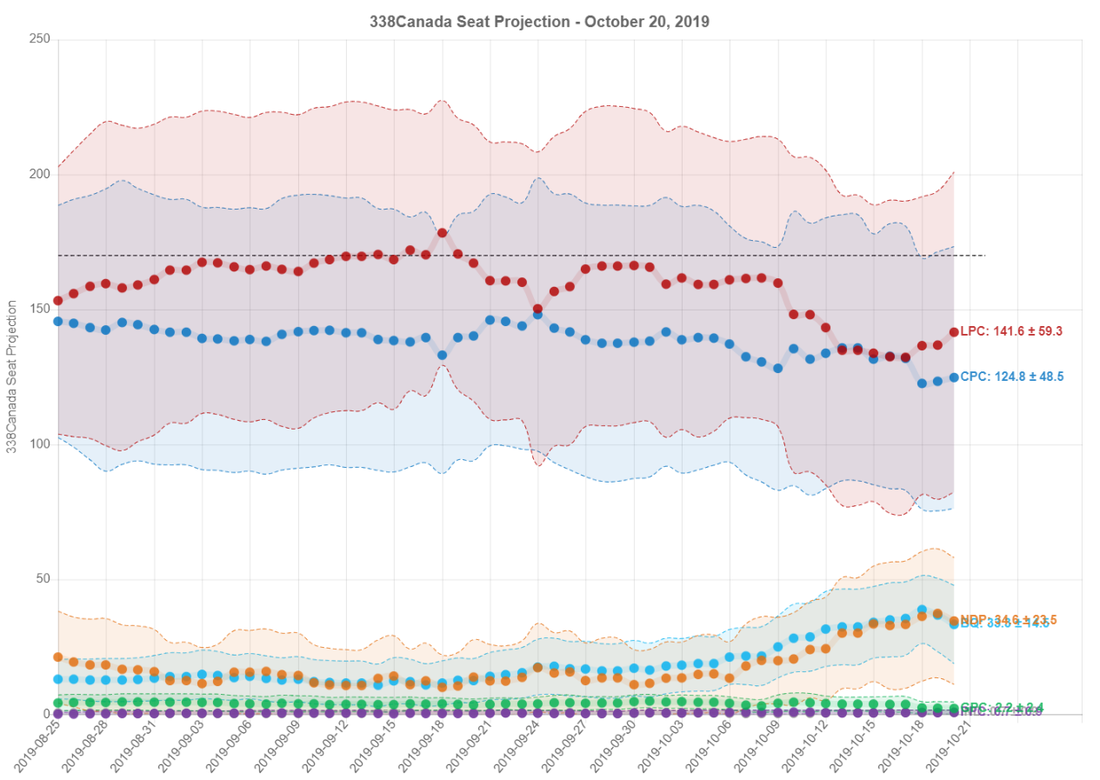
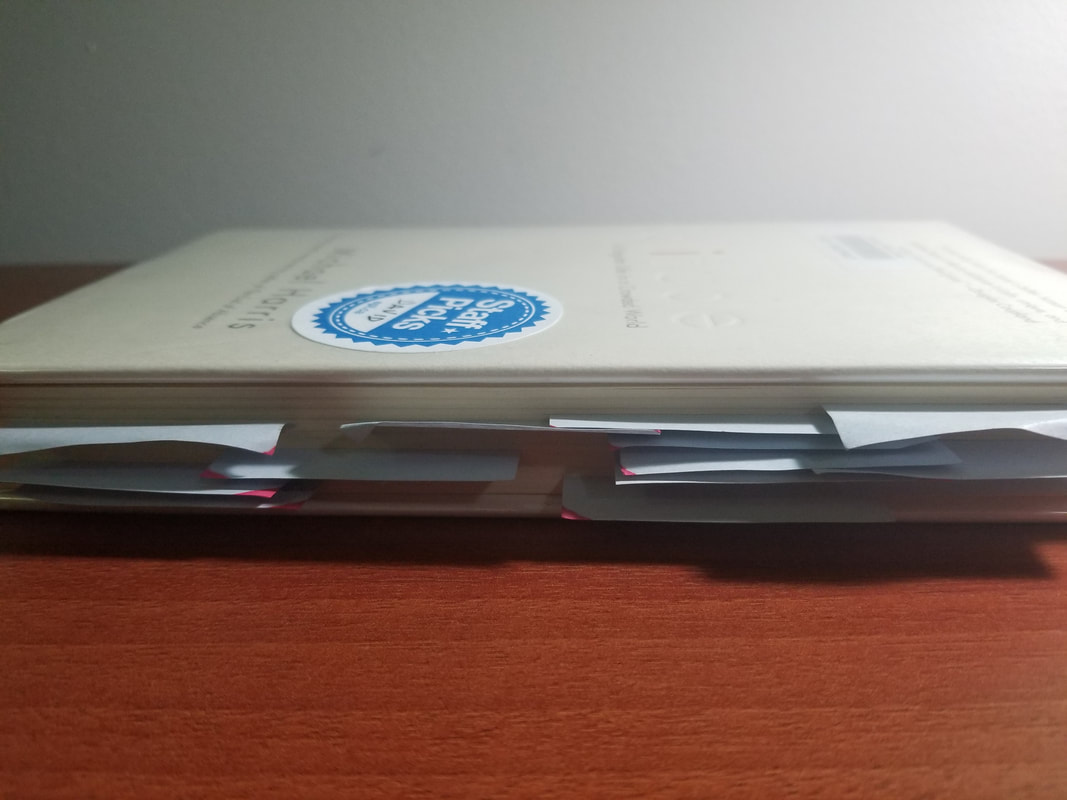
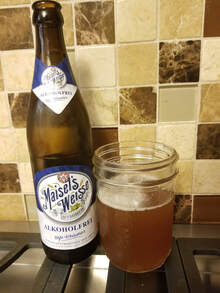
 RSS Feed
RSS Feed
